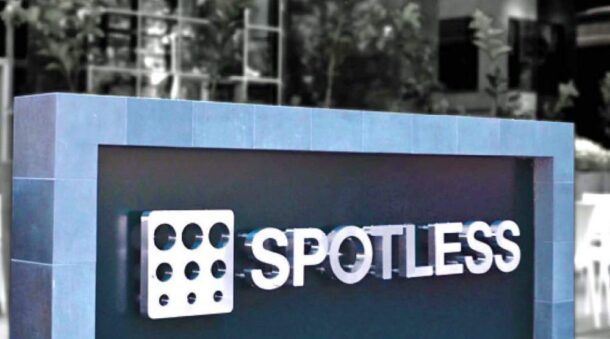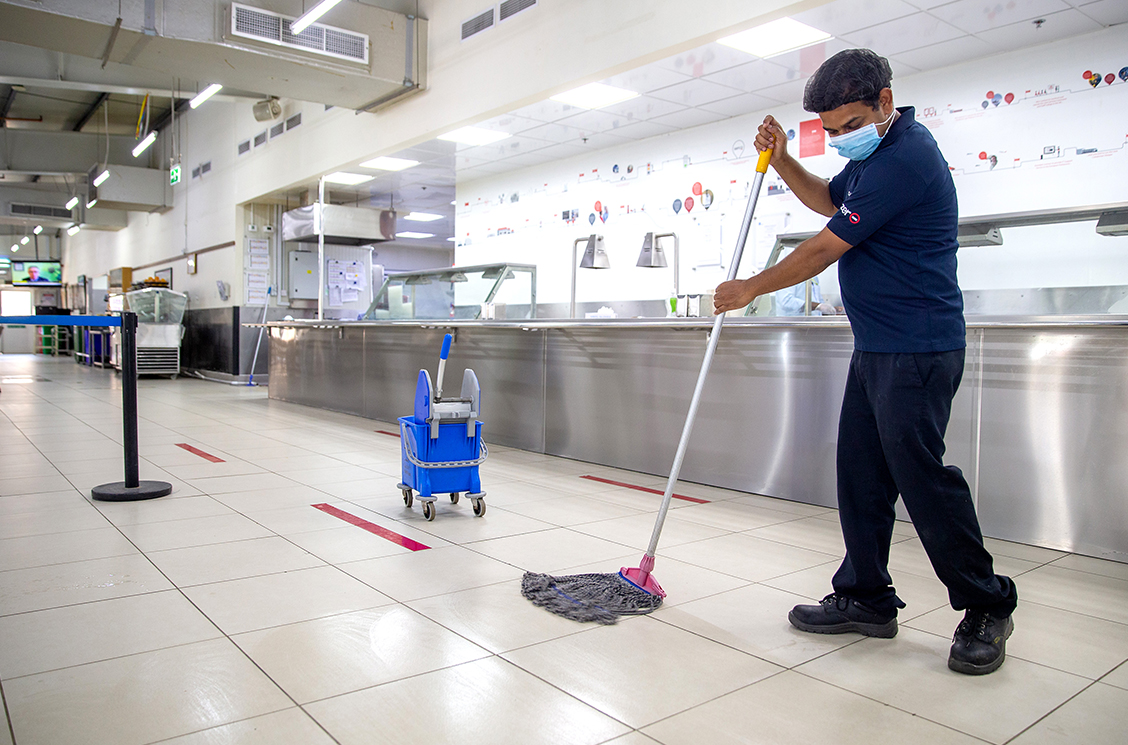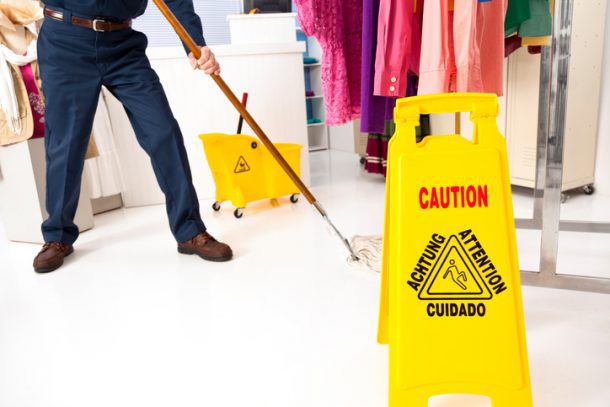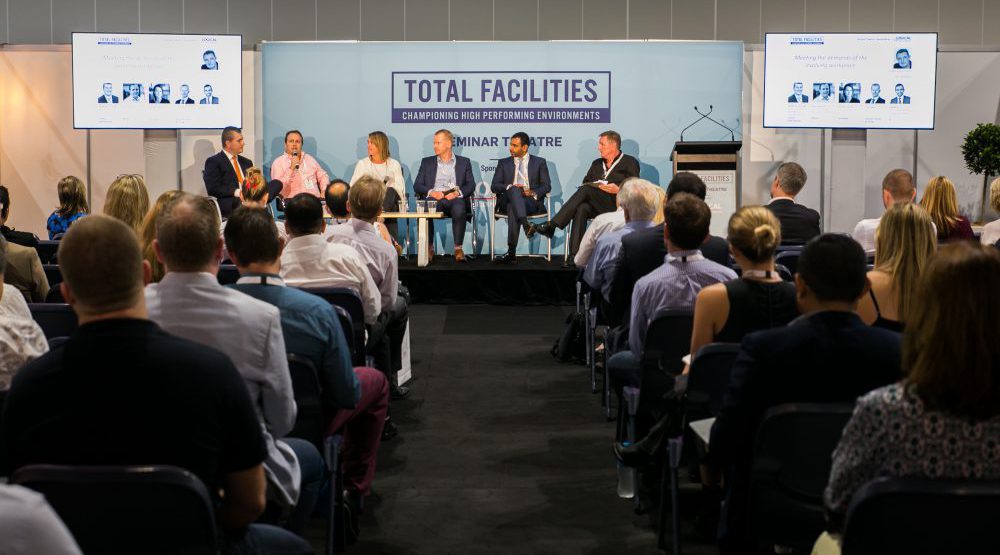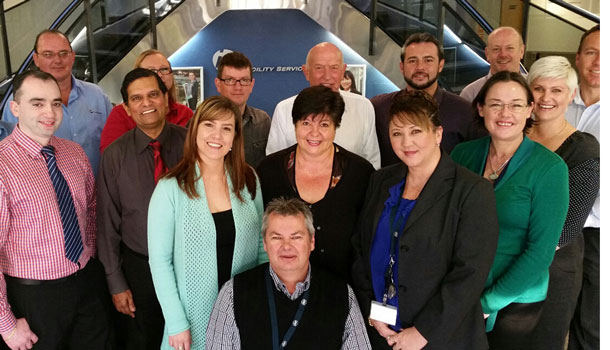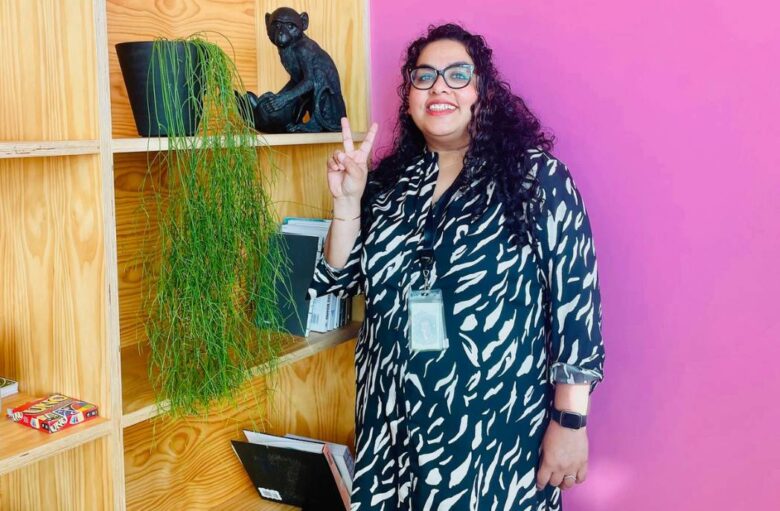
By Helena Morgan
A chorus erupts when Thaper enters a room because she is generally attending to a maintenance issue or spreading news about an upcoming office-bonding event that may or may not involve knock-off drinks.
“Even though you are ‘behind the scenes’ in facility management, everybody knows you and appreciates you, which is a great feeling,” says Thaper.
“People know when things malfunction, they’ll be seeing my face – they say, oh thank God you’re in office now!”
As with many facilities managers, she is committed to debunking the myth that the job is confined to office administration and maintenance tasks.
“Facility management is so much more than admin – we can be responsible for the overall health of a workplace,” says Thaper.
An early love for cultural event management
Thaper says her career in facility management was never strategic or calculated. She comes from cultural event management, where she gained an industry start in her home city of New Delhi, India.
Studying French as a second language at university saw Thaper specialise in event management for French artists visiting New Delhi. While she remembers the job as intense and demanding due to donning many different hats, Thaper loved the thrilling nature of event management.
She was also afforded the opportunity to work in France on an exchange program in cultural management. Thaper and her husband lived in South Korea for a period, yet she cited difficulties in finding employment, so she decided to volunteer for events in the cultural diaspora.
A relocation to Melbourne in 2013 saw Thaper enter an extensive and onerous job-hunting phase wherein she confronted frankly disappointing cases of racial bias that left her feeling disheartened.
‘It was a very hard time for me,” she says. “I was told by recruiters to change my name so I could be picked up by a company.”
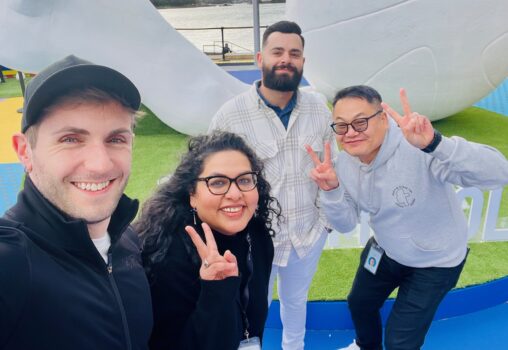
A case of getting facility management scouted
Thaper recalls feeling desperate, stagnant and just needing to “do something” yet coming up against roadblocks. She eventually secured a job working in office management for a film distribution company specialising in film festivals, however, the late nights prompted Thaper to find another job, as the hours were not conducive to family life.
A stint working at Deliveroo saw Thaper get facility management scouted, for lack of a better word. “Someone told me that I would be a good fit for facilities,” she says.
Unsure what the job entailed, Thaper recalls initially being a guilty culprit of surface level-judgements towards the industry.
“I remember asking if it was office management, and the person said yes, but it extends so much beyond admin,” says Thaper.
She grins while recounting that after four countries and five cities – now living in Sydney – she has found a rewarding career in facilities management.
A purposeful job of big and small thrills
Thaper is grateful to work in an inclusive and meaningful job, with people hailing from many different career backgrounds. She confirms the all-too-familiar trope in facility management of an ‘average day’ being a fallacy. Thaper and her small but hearty team of four at JLL have been known to refer to their days as either characterised by thrills, or an absence of thrills.
A day devoid of thrills generally involves meetings, office walkthroughs, cleaning inspections, financing and invoicing vendors. Thrill-less days also involve organising events for business units and ensuring clean, sufficiently stocked and well-presented conference or meeting rooms.
Thaper is also in the business of future-proofing, through overseeing mechanical, electrical and plumbing (MEP) works, so that “peaceful days” lie ahead for the team.
Whereas, a thrilling day entails electricity trips or technology malfunctions, and as much as it may cause disruptions to everyday proceedings, Thaper confesses a love for such “thrills.”
“The thrilling really helps, as sometimes it avoids a bigger problem because you’ve caught up with a smaller maintenance issue,” she says. The team are eager to minimise the splash zone and ensure the aftershocks aren’t too pronounced.
Future-proofing maintenance and finance
Preventative or ‘future-proofing’ maintenance is a regular fixture in Thaper’s days, alongside tasks that are government-authorised such as organising emergency procedure drills. Thaper also says finance is underrepresented as an essential part of a facilities manager’s day.
To attend to the needs of users of a space, you have to spend money.
Unlike marketing or sales, the facilities management department doesn’t earn anything, so
Thaper and her team have to justify spending, and guaranteeing immediate rewards – particularly when investing in greener and cleaner initiatives – can be tricky.
“We don’t earn any money like sales or marketing – we’re attending to lifecycle management,” she says.

The health, real estate and aesthetics of a facility
If there is one stereotype that Thaper is keen to see the back of, it is that the industry is synonymous with administration. She surmises that this outdated stereotype is symptomatic of facility management as a full-time career still being a relatively new reality, and that language will change.
The condition and state of a facility, whether it be a school, office or convention centre, is indebted to facilities – they hold a valued responsibility to make a space safe, comfortable and accessible.
“I feel so proud when someone in my office says they love coming into the office,” says Thaper.
A clean and presentable meeting room, functioning lifts, Thursday night knock-offs, mid-week coffees and sweet treats, seamless safety procedures, brand signage, artworks, first-aid courses – it’s all owed to Thaper and her team.
“We are the health of the office, the real estate of the office – the looks, the aesthetics, the diversity,” she says. They contribute to office wellbeing, visual presentation and safety, and all behind-the-scenes, and often after hours.
Thaper says facilities management can contribute to a sense of pride towards cultural diversity by suggesting certain meeting rooms be changed to local First Nations names, or including signage that celebrates a company’s makeup and composition.
She wants to see regular discourse surrounding the ever-evolving facilities management industry as that will hopefully spotlight the important and often misunderstood job. “The more we talk about it, the more people will notice our work,” says Thaper.
Environmentally and socially responsible facility management
Thaper rejoices in the major leap in efficiency at JLL through the implementation of Corrigo, a system that manages facility management work orders without needing to send 20 emails.
“We can schedule all maintenance that we want to do with our vendors and they are notified in time,” she says. Deadlines are met and reports are consolidated in one place.
Thaper is inspired by the wider embrace of sustainability and the drive to find ecologically responsible solutions in carbon-heavy buildings. She is proud to work in an office that also promotes social sustainability, with the JLL space in Barangaroo boasting convenient access to public transport and office-bonding activities that Thaper plays a role in delivering.
“The appreciation from the team keeps us going – people commend us for creating an inclusive space,” she says.
Flexible and socially vibrant office spaces
Thaper looks forward to noticing people using the well-maintained office rooms for a moment of solitude and peace or robust catch-ups.
She relishes developing a nourishing office culture, possibly owed to her background in “thrilling” cultural event management. This task of creating a memorable and unique office culture holds even more value and importance against the backdrop of the heated return-to-office debate.
“Everyone enjoys a good work-life balance,” says Thaper. “The flexibility to manage home priorities such as school drop-offs and pickups, cooking and errands on weekdays is very convenient.”
The pursuit towards securing a healthy and sustainable work-life balance means people are looking to come into the office for more than just a meeting.
“You really need to make sure that an office is keeping up with what people want, through introducing features such as a massage chair or arranging knock-off drinks,” says Thaper.
Offices should aim to create a vibrant atmosphere that still lends itself to productivity, discipline and diligence. Thaper believes workplaces can have the best of both worlds.
“If you can get creative with facility management, it really does make a difference for people.”
Photography supplied by Divya Thaper.
This story was first published in Facility Management. Visit fmmedia.com.au.
